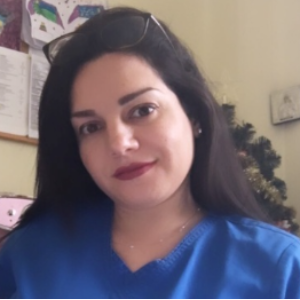Title : Does premedication with systemic corticosteroids and antibiotics reduce inflammation and intraoperative bleeding during sinonasal endoscopic surgery for chronic rhinosinusitis with nasal polyps (CRSwNP) ?
Abstract:
Introduction: Chronic rhinosinusitis with nasal polyps (CRSwNP) is a disease characterized by a variety of inflammatory mechanisms. Extensive genetic analyses have shown that among the molecules that are involved in its genetic base, interleukins (ILs) play a critical role in development and progression of CRSwNP . Interleukins, such us IL-4 (5q31.1), IL -5 (5q31.1), IL-13 (5q31.11) and IL-25 (14q11.2) are found to be overexpressed. One of the most common complications during surgery is bleeding. Bleeding increases the risk of complications as well as the time of surgery. One of the strategies for reducing bleeding during surgery is the use of preoperative corticosteroid.
Purpose: To study the change of the degree and intense of inflammation and vascularity in chronic rhinosinusitis with nasal polyps (CRSwNP) among patients who received immediate preoperative treatment with oral corticosteroids and antibiotics, compared to patients who did not.
Our study is going to investigate for the first time using immunohistochemical methods, whether the immediate preoperative treatment with oral corticosteroids and antibiotics in patients with CRSwNP who are to be operated on, is associated with reduced inflammation and vascularity of the surgical field.
Regarding Inflammation, the degree and intensity of immunohistochemical expression of inflammatory markers will be evaluated.
Regarding Vascularity, the immunohistochemical expression of endothelial markers will be evaluated, through Digital Image Analysis, in order to avoid technical problems of subjective estimation.
Patients and Methods: The study group consists of fifty (50) patients who were given immediate preoperative treatment with per os corticosteroids and antibiotics (Methylprednisolone in tapering form and Amoxicillin / Clavulanic acid) for 7 days. The second control (control group) consists of fifty (50) patients who have not received any pretreatment.
Results: From the review of the literature to date, the effect of corticosteroids and antibiotics on the size of nasal polyps, nasal symptoms and systemic markers of inflammation is significant. The use of perioperative corticosteroids reduces blood loss and operation time and improves the quality of the surgical field. There are no other medications that have been shown to improve the surgical field and outcome.
Statistical analysis of our results will investigate whether there is a statistically significant difference between the immunoexpression of inflammatory markers, angiogenic adhesion molecules and vascularity between patients with CRSwNP who underwent endoscopic surgery after receiving preoperative treatment compared to patients who underwent surgery without any pretreatment. Secondly, if indirect preoperative administration of antibiotics and corticosteroids can change the degree and severity of inflammation in CRSwNP. Thirdly, if due to their impact on the degree and intensity of the inflammation, the intraoperative bleeding during the endoscopic surgery for CRSwNP is affected.



